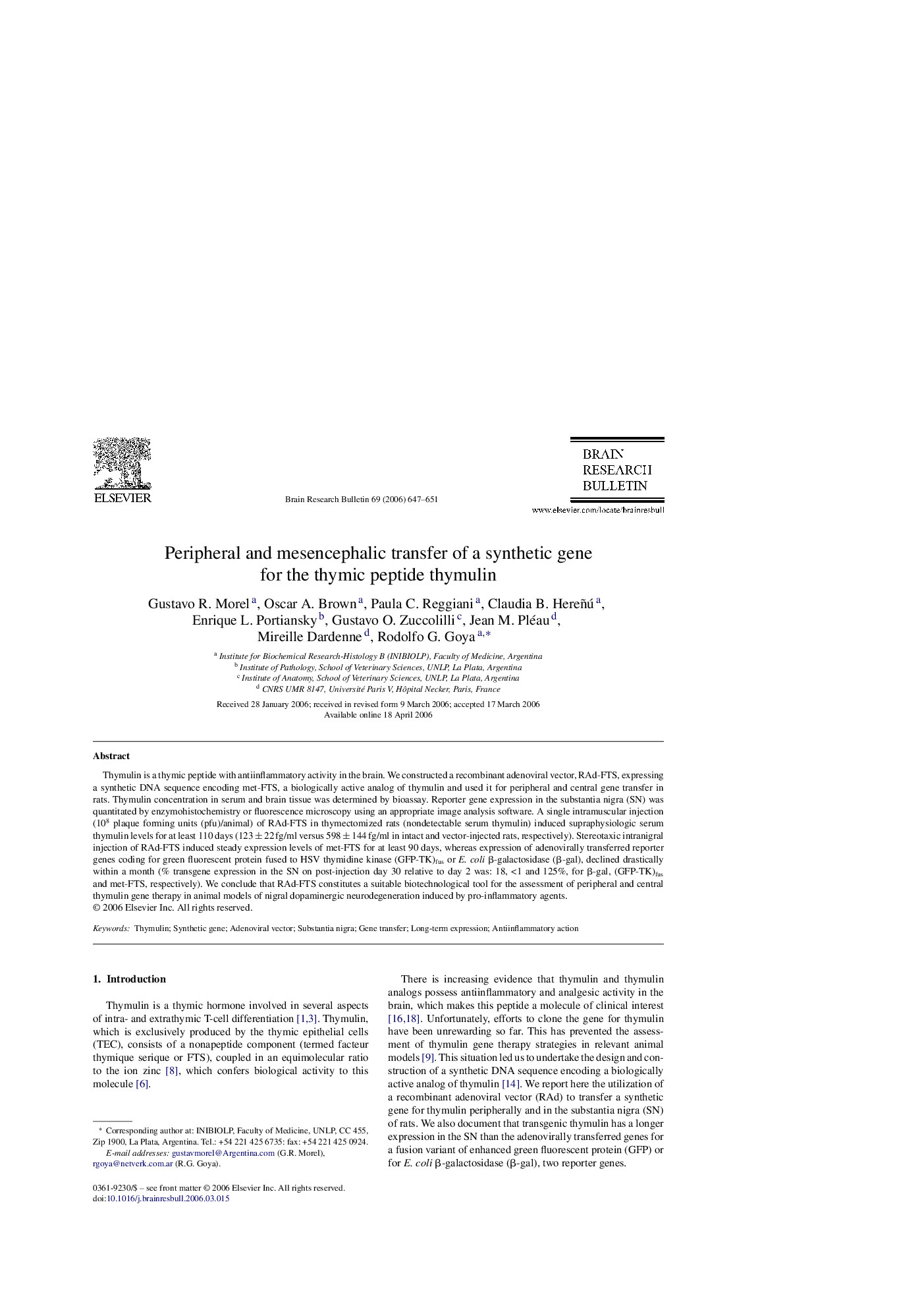| Article ID | Journal | Published Year | Pages | File Type |
|---|---|---|---|---|
| 4320315 | Brain Research Bulletin | 2006 | 5 Pages |
Abstract
Thymulin is a thymic peptide with antiinflammatory activity in the brain. We constructed a recombinant adenoviral vector, RAd-FTS, expressing a synthetic DNA sequence encoding met-FTS, a biologically active analog of thymulin and used it for peripheral and central gene transfer in rats. Thymulin concentration in serum and brain tissue was determined by bioassay. Reporter gene expression in the substantia nigra (SN) was quantitated by enzymohistochemistry or fluorescence microscopy using an appropriate image analysis software. A single intramuscular injection (108 plaque forming units (pfu)/animal) of RAd-FTS in thymectomized rats (nondetectable serum thymulin) induced supraphysiologic serum thymulin levels for at least 110 days (123 ± 22 fg/ml versus 598 ± 144 fg/ml in intact and vector-injected rats, respectively). Stereotaxic intranigral injection of RAd-FTS induced steady expression levels of met-FTS for at least 90 days, whereas expression of adenovirally transferred reporter genes coding for green fluorescent protein fused to HSV thymidine kinase (GFP-TK)fus or E. coli β-galactosidase (β-gal), declined drastically within a month (% transgene expression in the SN on post-injection day 30 relative to day 2 was: 18, <1 and 125%, for β-gal, (GFP-TK)fus and met-FTS, respectively). We conclude that RAd-FTS constitutes a suitable biotechnological tool for the assessment of peripheral and central thymulin gene therapy in animal models of nigral dopaminergic neurodegeneration induced by pro-inflammatory agents.
Related Topics
Life Sciences
Neuroscience
Cellular and Molecular Neuroscience
Authors
Gustavo R. Morel, Oscar A. Brown, Paula C. Reggiani, Claudia B. Hereñú, Enrique L. Portiansky, Gustavo O. Zuccolilli, Jean M. Pléau, Mireille Dardenne, Rodolfo G. Goya,
